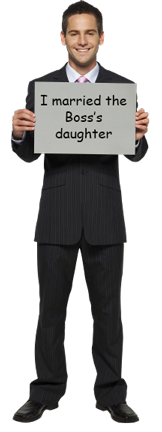Family Business Succession
It is easy to get stalled at the crossroads planning for the future - for yourself, your family and the next generation of leaders in your organization. Whether you are on-boarding, off-boarding or making a change in course, it helps to have someone who can help you develop and implement a road map that will accomplish your goals without sacrificing family harmony or business success.
The Victorio Consulting team provides coaching and guidance to individuals, families and organizational teams through transitions of leadership and career change. We help families and business teams work together better and create a platform for problem solving and future success.
We are committed to helping you achieve your goals without sacrificing family harmony and business success.

We believe there is no business gain worth a family loss.
Addressing emotional issues in a straightforward and safe manner is no easy task, and you will need guidance from an experienced facilitator. This requires a willingness for all parties to take a step back their individual desires to achieve a bigger vision for the family and the organization.

Providing a safe environment to discuss delicate issues.
Each organization requires a uniquely tailored program to provide an organized pathway for the next generation to understand, prepare for and pursue any number of management careers. Having worked with many families across the country, experience has taught us that it is important to clarify the expectations for educational and experiential requirements, provide a mechanism for communication and problem solving, most importantly define a development curriculum within the company so each developing successor will have a plan for advancement based upon their accomplishments.

Achieving a win/win/win means there are no losers.
The objective steps out of the two boxes of Yours or Mine, and enters into a third option, a greater goal that addresses a holistic solution, that will accomplish your goals without sacrificing family harmony or business success. Addressing emotional issues in a straightforward and safe manner is no easy task and requires a willingness for all parties to take a step back from their individual aspirations to achieve a bigger vision for the family first, and secondly, for the business.
You can't run a family like a business and you certainly can't run a business like a family.
The successful family unit is centered upon unconditional love and acceptance. Successful business relationships are based upon talent, experience and accountability. When you mix these two entities together, you are bound to run into complications and conflicting objectives. Addressing these emotional issues in a straightforward manner is complicated and you will need guidance from an experienced Succession Coach to help you. Achieving a win/win/win outcome means there are no losers. This requires a willingness for all parties to take a step back from their individual desires to achieve a bigger vision for the family and the business.
How to facilitate a healthy transition for your business
If you are a business owner, key manager or employee of a company going through an organizational transition, such as a merger or leadership change, it is likely you will experience performance disruption caused by confusing messages, speculation or lack of information. And you are not alone. Often the planning for these important events happen behind closed doors with only the owners and advisers, leaving everyone else to speculate about the future. Business owners can avoid these challenges by being more transparent about upcoming changes and engaging everyone into the process.

Family Governance
As a family business owner, you may want to bring your children or other family members into your business. You may have already done so and discovered it’s been a bumpy ride. How do you do work with family members and still protect family relationships? When family members work together, the boundaries between work and family time becomes blurred, and the relationships overlap. Families need to think through how to separate the parent/child relationship from the owner/employee relationship.

The Family Council
One of the best venues to discuss the business of the family is in a “family council.” What we’ve learned is that people should separate family gatherings from family business discussions. A more formal setting encourages a more professional and organized approach, often by having advisers and a facilitator present to help explain things in a way that won’t upset or confuse.
Unmet expectations or anxiety about the unknown can seriously undermine family harmony. Whether there is conflict or not regarding the succession plan or the division of assets you can side step potential years of tension and upset by tackling these tough discussions step by step with the guidance of a trained facilitator. Knowing, even if you don’t like the answer, is most often better than being in the dark.

Making important decisions related to your financial and business future, can easily tie a couple and family into emotional knots. Differences in leadership, communication and decision-making styles can threaten even the best of families when discussing sensitive issues.
There are many things that families can do to become more effective communicators (and listeners) and in turn, to improve the quality of their relationships. One of the tools we use to help couples and families understand each other better is through the PDP Behavioral Assessment Survey®. Understanding the four basic behavioral personality traits and how these traits influence behavior under stress can be an effective tool to enhance family communication.

Preparing the Next Generation for Leadership
What will it take to get the future leaders ready for succession in your business? While many family-owned organizations do a good job of creating wills, trusts and a buy/sell agreement, too few formally prepare the next generation to lead and succeed in the businesses they will be inheriting. Too many succession plans assume the owner will be able to schedule his or her own passing, and so they forego developing a backup contingency plan, which can sometimes have tragic consequences. If you are a business owner hoping to pass your business to your children, the transition of leadership is far more complicated than simply transferring formal ownership.
When family is involved in your business it can be a wonderful thing. However, the lines between professional and personal can blur if relationships are not managed properly. For example, what do you do when your nephew graduates from college and your brother calls to ask if you can find a job for him in your company? This can put a lot of pressure on that relationship, as well as the managers in your company who will be responsible for your nephew.
What should in-laws know before going to work in the family business?
As an in-law coming into a family business, you’re stepping into one of the hardest working environments imaginable. A family member is held to a higher standard than regular employees, but an in-law has to work even harder than a family member. It takes someone with vision, purpose and patience to overcome the extra challenges. If you lay the right groundwork, establish clear expectations, and work with an adviser familiar with the challenges that will occur, it can be a productive and joyous experience.

John, your charming and successful brother-in-law, faced a harsh reality: downsized, his six-figure career a flicker in the rearview mirror. The family worried, the financial strain palpable. A natural solution emerged: bring John into the family business, leveraging his sales expertise. But hold on, not so fast!
Think of your family business as a magnificent staircase, each step representing experience and earned trust. While John's impressive sales record shines, jumping straight to VP of Sales risks a stumble, both for him and the company. Imagine the team's reaction, the pressure on John to instantly navigate unfamiliar territory. It's a recipe for anxiety and potential failure.
Instead, picture this: John starts on a lower rung, one commensurate with his current experience in this new industry. He may begin with customer service, learning the ropes, understanding your clientele, and building rapport. Each conquered step empowers him, fosters confidence, and earns him the respect of his colleagues. He's not just the "downsized in-law"; he's John, the dedicated team player, proving his worth.
As John thrives, his ascent up the staircase becomes natural, a testament to his hard work and growing understanding of the business. His past success fuels his present endeavors, making him an even more valuable asset. Now, about the financial gap. While John climbs the ladder, understanding is key. Parents, if comfortable, can offer personal, non-business financial support to bridge the short-term gap. This gesture of love and faith strengthens the family bond and fuels John's determination to succeed, not as a handout recipient, but as a rising star within the company.
Remember, John's story isn't just about him; it's about embracing potential, fostering trust, and navigating change within the family unit. Let his journey be a testament to the power of opportunity, hard work, and the unique support only a family can offer. So, open the door to the family business, but let John ascend the staircase step by step, earning his place and rewriting his success story on a familiar foundation.
Develop and adopt a family member employment policy before young family members are ready to enter the work force. The policy establishes the criteria for a family member to qualify for a job at the company. It sets the level or type of education, the desired skill set, mandates that no job will be invented for a family member unless it’s needed by the company and determines that pay scales will be commiserate with those of non-family members.
Your managers will appreciate your family employment policy, as it will address the complicated family issues before they happen. It also clarifies with family the qualifications and the experience they’ll need to work at your company.
How do you set expectations for managers of family members?
Bring your key managers in as mentors to define how you want to handle your children’s professional development, as well as the predictable bumps and challenges. Triangulation can be a really big problem in family businesses.

Julia, a seasoned manager, prides herself on fairness and results. So, when Dad, the owner, entrusts her with training Sam, his inexperienced son, Julia welcomes the challenge. But soon, optimism collides with reality. Sam arrives late, his work lacks effort, and his attitude reeks of entitlement. Julia, ever the professional, tries the direct approach. A clear warning, coupled with specific steps for improvement, leaves no room for ambiguity. Yet, instead of buckling down, Sam whines to Mom, who spins a narrative of "unfair treatment" to Dad.
Now, Julia faces a tightrope walk. Does she appease the boss and risk undermining her authority, potentially turning Sam into a spoiled underachiever? Or does she stand her ground, risking Dad's favor and jeopardizing her job? Julia chooses integrity. She calmly presents Dad with documented facts – Sam's tardiness, subpar work, and lack of initiative. She emphasizes her efforts to coach and guide Sam, highlighting the son's resistance to feedback. The conversation is tense, but respect and honesty pave the way for a solution.
Together, they agree on a clear performance improvement plan for Sam, with consequences laid out for continued poor performance. Dad, recognizing the truth, backs Julia’s approach. Sam, finally facing reality, has a stark choice: shape up or ship out. This wasn't a fairy-tale ending. There were uncomfortable truths, strained relationships, and the ever-present risk. But by prioritizing fairness, accountability, and open communication, Julia navigated the family feud, upholding her professional standards and potentially setting Sam on the path to becoming a valuable asset, not just a privileged burden.
Remember, leadership often demands tough choices. Julia’s story underscores the courage it takes to stand up for what's right, even when the stakes are high, proving that true success lies in building a culture of accountability, not nepotism.
The best thing you can do is talk about triangulation before it happens. Sit down with your managers and define how you want to interact with them. If a situation arises, who decides the course of action? You need to build a bridge of communication so the owner, parent, manager and incoming family member have the opportunity to talk these things through before relationships get tangled up.
If a family business hasn’t planned up front, is it too late to make changes if a next-gen family member is already working at the company?
It’s never too late. A succession coach can help you begin to untangle the knots that have people tied up. Next-generation family members can exhibit entitled, blasé or even toxic behavior at any age. Don’t think you can turn a blind eye to it if you want to have a smooth and successful leadership transition. The situation can be turned around if you address it with determination and commitment.
Why is having a succession coach valuable?
Engaging a coach who specializes in succession transitions to help employed family members can smooth the predictable challenges along the way. Family employees, including in-laws, need a safe place to talk, and guidance to strategize through the maze of issues that will occur. The coach also can facilitate a family business council, which provides a venue for family members to talk about business related topics, questions and issues that would normally feel inappropriate to bring up in a productive environment.
